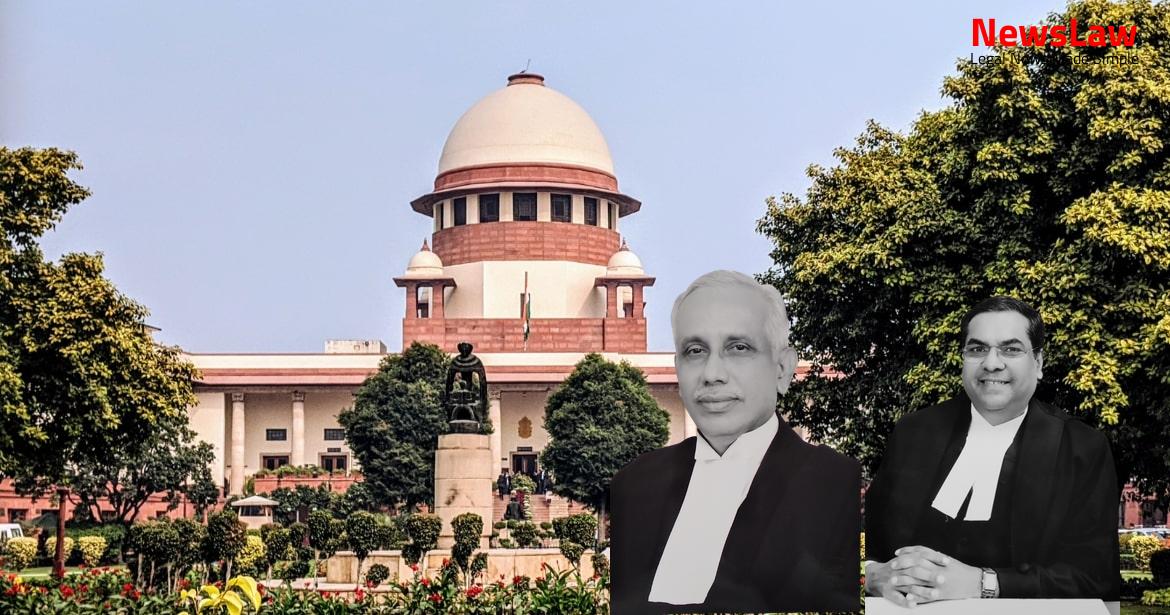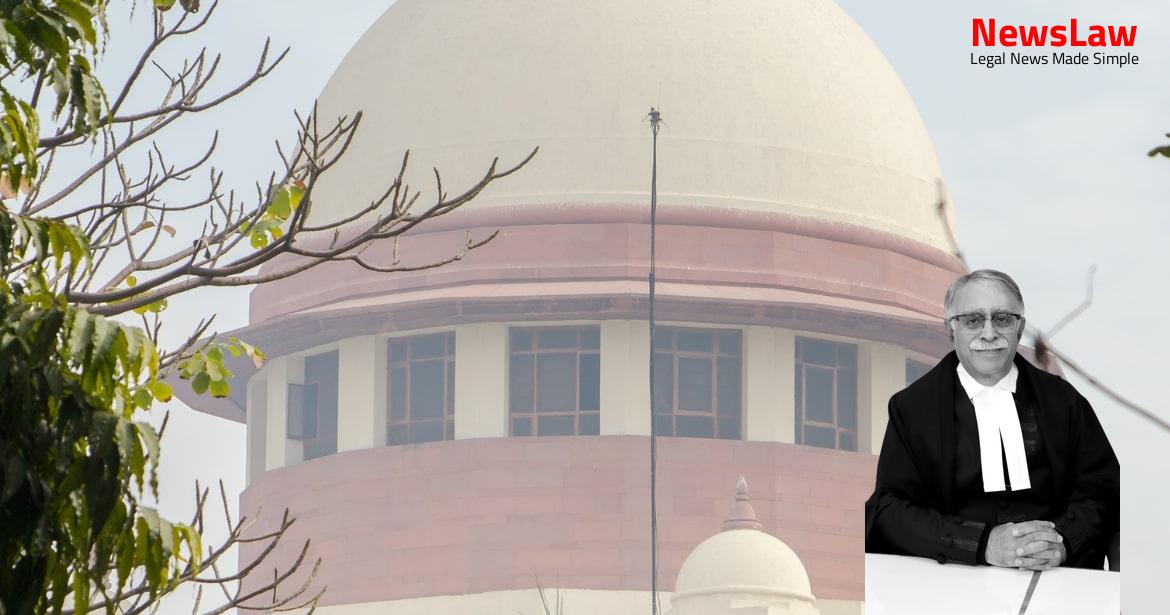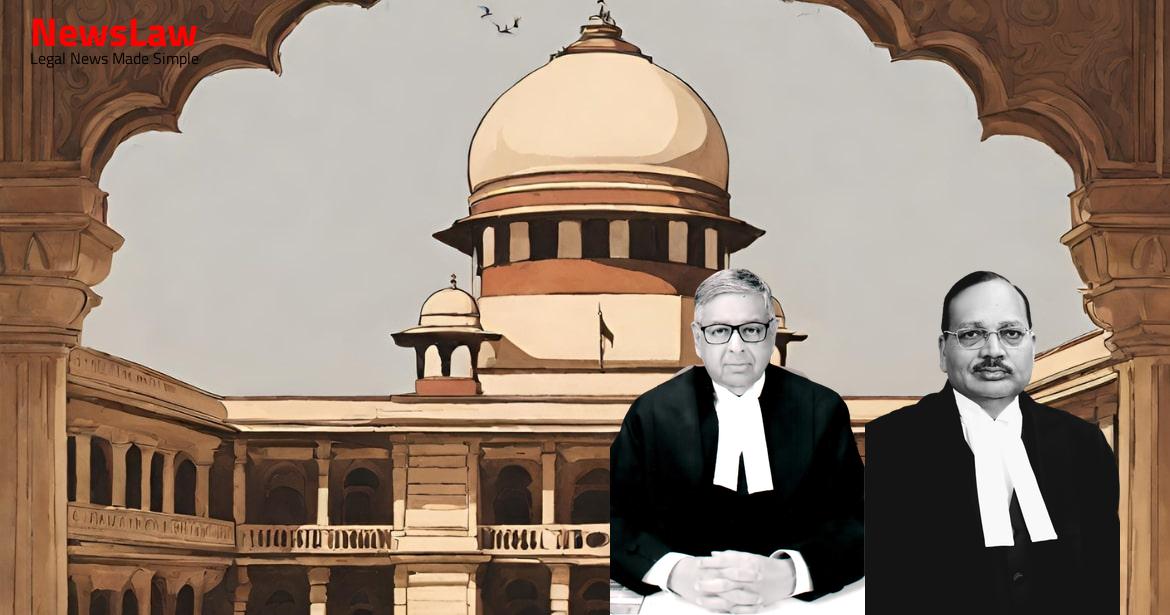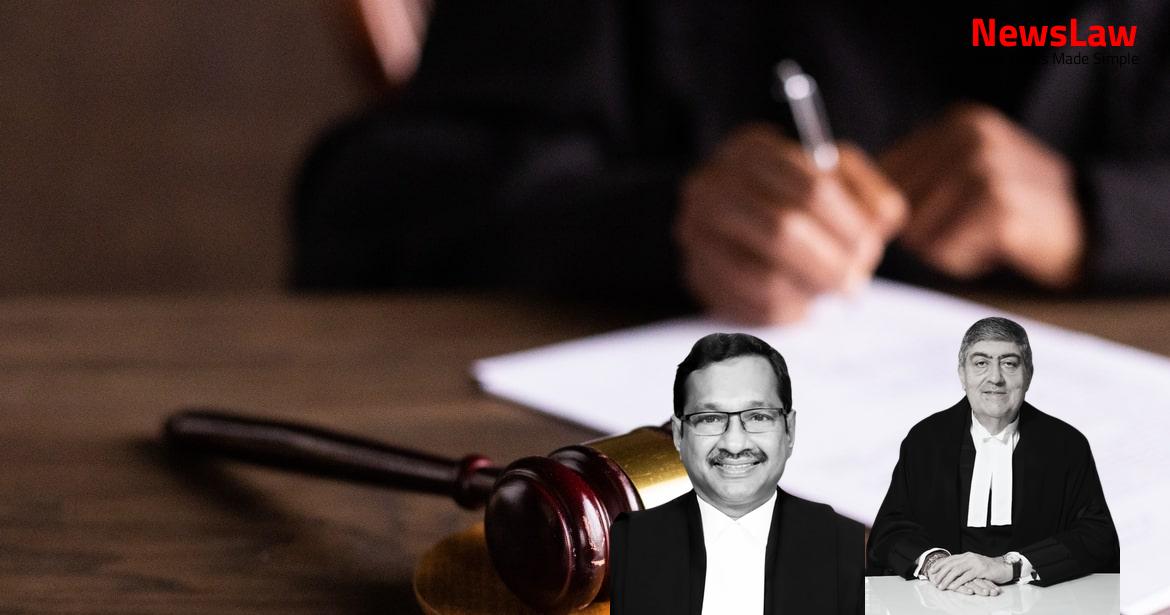Delve into the complexities of juvenility determination in criminal cases, focusing on the legal analysis provided by the court. The examination of the Juvenile Justice Act and its implications on cases where the accused was below the age of 18 at the time of the offense underscores the importance of clarity and adherence to legal provisions. This summary sheds light on the nuances of applying the law to ensure justice is served appropriately.
Facts
- The impugned judgment confirmed the conviction of Keshav Ram, Ram Kuber, and Satya Deo for the offence under Section 302 read with section 34 of the Indian Penal Code.
- The order of sentence directed them to undergo imprisonment for life.
- The Special Leave Petition filed by Keshav Ram and Ram Kuber challenging the judgment of the Lucknow Bench of the Allahabad High Court was dismissed on 17.08.2018.
- Notice was issued on the plea of juvenility in the case of co-accused Satya Deo@ Bhoorey.
- Leave was granted in the case of Satya Deo on 02.05.2019.
- Satya Deo was 16 years 7 months and 26 days old on the date of the offence: 11.12.1981.
- Documents supporting his age include a Transfer Certificate from Ram Narayan Singh Inter College and the Admission Register of Primary School, Pairi.
- His date of birth recorded during his class-10 examination was 15.04.1965.
- The complainant had passed away, and notice was served on the heirs who did not appear before the court.
- No evidence was presented by the prosecution.
- The court found Satya Deo’s date of birth undisputed and not challenged.
- Despite this, the district court mentioned that Satya Deo was not a juvenile as per the Juvenile Justice Act, 1986.
- A further inquiry was ordered to determine if Satya Deo was a juvenile at the time of the offence.
- The inquiry report confirmed Satya Deo’s date of birth as 15.4.1965.
Also Read: Analysis of Agency Relationships in Taxation
Issue
- The 2000 Act will be applicable in a pending proceeding initiated under the 1986 Act if the person had not turned eighteen by 1st April 2001.
- The reckoning date for determining the age of a juvenile offender is the date of the offence, not the date of production before the court or authority.
Also Read: Land Auction Dispute Resolution
Analysis
- The analysis focuses on the legal provisions and principles related to juvenility under the Juvenile Justice Act of 2000 and subsequent amendments.
- It discusses the application of the 2000 Act in cases where the accused was below the age of 18 at the time of the offense, even if they had turned 18 before the Act came into force.
- The explanation in the Act emphasizes that juvenility determination should be based on the age at the time of the offense, regardless of the current age of the individual.
- Section 25 of the 2015 Act deals with pending cases and emphasizes that proceedings should continue under the previous Act if they were ongoing at the time of the 2015 Act coming into force.
- The analysis also covers special provisions for juveniles convicted before the enactment of the 2000 Act, ensuring that their cases are reviewed under the new Act’s guidelines.
- Furthermore, it explains how legal fictions and provisions within the Acts ensure that individuals below 18 at the time of the offense are treated as juveniles, even if they have reached adulthood by the time the Acts come into effect.
- Satya Deo was less than 18 years old at the time of the offense and this fact is undisputed.
- Satya Deo has already served more than 2 years in incarceration.
- In cases where the accused was between 16 and 18 years old at the time of the offense, the proceedings in court continue, but upon a guilty finding, no sentence is passed; the juvenile is referred to the Board for appropriate orders under the 2000 Act.
- In a similar case, Jitendra Singh v. State of U.P. highlighted that certain ‘punishments’ under the Juvenile Justice Act, 1986 may not be appropriate given the circumstances, and recommended a fine as a realistic punishment.
- The determination of juvenility post-conviction was clarified by the Supreme Court in various cases discussed.
- The right to appeal keeps the trial continuing despite conviction, as seen in Akhtari Bi v. State of M.P.
- The decision in Gaurav Kumar @ Monu v. State of Haryana is not applicable as it dealt with a different matter regarding the interpretation of rules.
- The significance of Section 20 of the 2000 Act in dealing with pending cases was discussed in Pratap Singh v. State of Jharkhand.
- When a claim of juvenility is raised before the court or if the court believes the accused was a juvenile at the time of the offense, an inquiry must be conducted to determine the age of the person.
- The court must record a finding whether the person is a juvenile or not, stating the age as nearly as possible.
- Even if the accused has ceased to be a juvenile before the commencement of the Act, the issue of juvenility must be decided in line with the Act and Rules.
- If a juvenile is undergoing imprisonment at the start of the Act, they shall be sent to a special home or institution for the remainder of the sentence.
- Proviso and explanation added to Section 64 clarify that review of cases of juveniles under sentence is mandatory, even if they ceased to be juveniles before the Act came into force.
- Section 20 addresses pending cases, stating that proceedings for juveniles shall continue as if the Act had not passed, and if found guilty, the case is forwarded to the Juvenile Justice Board.
- Proviso to Section 7A allows the claim of juvenility to be raised before any court at any stage, even after the case’s final disposal.
- The amendments in Section 64 make it mandatory for the State Government to direct the transfer of juveniles in conflict with law to a special home or institution if undergoing imprisonment at the Act’s commencement.
Also Read: Analysis of Bail Conditions in Criminal Appeal No. INSC 48/2024
Decision
- The Board will pass appropriate order regarding detention and custody
- The matter is remitted to the jurisdiction of the Board for directions under Section 15 of the 2000 Act
- The Board will determine and order payment of fine and compensation to the deceased’s family
- The appeal by Satya Deo is partly allowed as specified, and pending applications are disposed of
- No comments are made on the order under Section 15 of the 2000 Act
- Conviction of Satya Deo is upheld but the sentence of life imprisonment is set aside
- Satya Deo is to be produced before the Board by jail authorities within seven days of receiving the judgment copy
Case Title: SATYA DEO ALIAS BHOOREY Vs. THE STATE OF UTTAR PRADESH (2020 INSC 577)
Case Number: Crl.A. No.-000860-000860 / 2019



